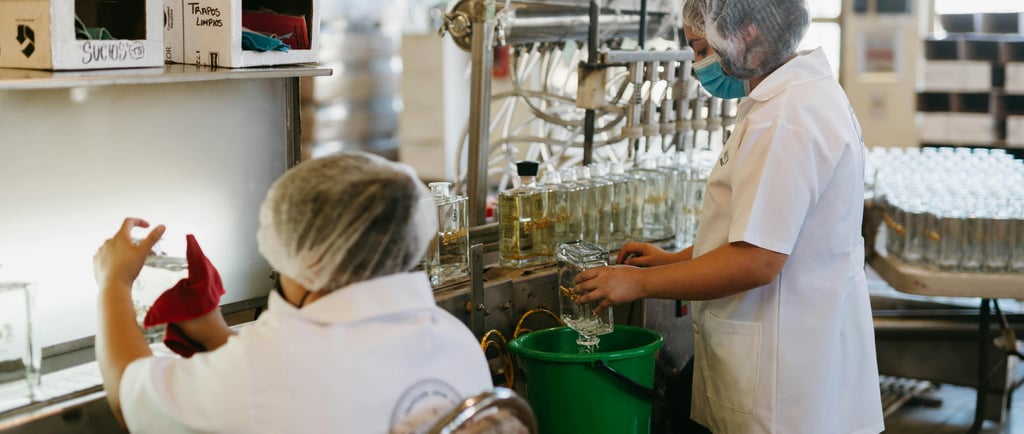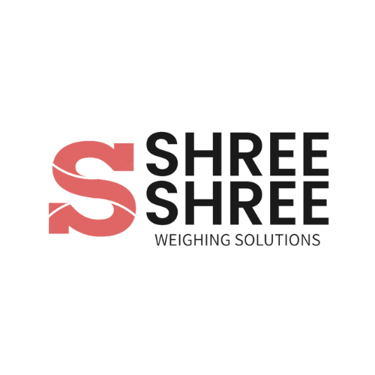Weighing Scales in the Pharmaceutical Industry: Precision, Compliance, and Quality Control
The pharmaceutical industry is one of the most highly regulated sectors, where precision and accuracy are paramount in every stage of production. From manufacturing raw materials to packaging the final product, accurate measurement ensures the safety, efficacy, and consistency of pharmaceutical products. Weighing scales are vital tools in the pharmaceutical manufacturing process, helping companies maintain compliance with strict quality control standards and regulatory requirements. This blog delves into the crucial role of weighing scales in the pharmaceutical industry, focusing on their applications in ingredient weighing, formulation development, batch control, and quality assurance.
6/25/20255 min read


1. Accurate Ingredient Weighing for Formulation Development
One of the most critical steps in pharmaceutical production is the accurate measurement of active pharmaceutical ingredients (APIs) and excipients. Even the smallest deviation in ingredient amounts can lead to ineffective or unsafe medications. Weighing scales help pharmaceutical manufacturers measure ingredients with the highest degree of accuracy.
Analytical balances are commonly used to measure small quantities of APIs and excipients with precision, ensuring that formulations meet exact specifications.
Precision balances are also used to weigh larger quantities of ingredients, making sure the correct proportions are included in each batch.
By utilizing high-precision weighing systems, pharmaceutical manufacturers can ensure that each product is formulated to exact specifications, guaranteeing its efficacy and safety.
2. Ensuring Batch Consistency and Quality Control
Maintaining batch consistency is essential in pharmaceutical manufacturing. A slight variation in the ingredients, even in small batches, can lead to inconsistent product quality. Weighing scales are integral to batch control, ensuring that the exact amount of ingredients is used in each batch.
Automated batch weighing systems are used to weigh and mix ingredients in the correct proportions, reducing the risk of errors and ensuring consistency across all batches.
Checkweighers are used to monitor the weight of the final product, ensuring that each unit meets the required specifications for weight and dosage.
By employing automated weighing systems, pharmaceutical companies can enhance batch consistency, reduce human error, and maintain product quality across production runs.
3. Complying with GMP (Good Manufacturing Practice) Regulations
The pharmaceutical industry is governed by strict regulations such as Good Manufacturing Practice (GMP), which sets the standards for quality control and production processes. Weighing scales play a pivotal role in ensuring compliance with GMP guidelines by providing accurate and reliable measurements.
Certified weighing equipment ensures that all measurements are conducted according to GMP standards, which is essential for regulatory compliance.
Weighing records can be automatically logged and stored for future audits, ensuring that all data is readily available for inspections.
By using certified and compliant weighing systems, pharmaceutical manufacturers can maintain GMP compliance, which is essential for market approval and customer trust.
4. Supporting the Development of New Pharmaceutical Products
The development of new pharmaceutical products requires precise formulation and testing. During the research and development (R&D) phase, accurate measurements of ingredients are critical for the success of the formulation.
Laboratory balances are used in R&D to measure small quantities of raw materials accurately, ensuring that experimental formulations meet the desired potency and effectiveness.
Analytical balances are also used in stability testing, where the chemical composition of a formulation must remain consistent over time.
By utilizing high-precision weighing systems during R&D, pharmaceutical companies can develop new drugs and formulations that meet required standards of efficacy and safety.
5. Ensuring Accurate Packaging and Labeling
Pharmaceutical products are packaged in precise dosages, and accurate packaging is essential to ensure that each unit contains the correct amount of the active ingredient. Weighing scales help ensure that the final product meets both labeling and weight specifications.
Checkweighers are used to verify that packaged products contain the correct weight, ensuring that consumers receive the correct dosage of the active ingredient.
Automatic packaging scales ensure that each container or bottle is filled with the precise amount of the pharmaceutical product.
Accurate packaging and labeling are crucial for both regulatory compliance and consumer safety. Weighing scales ensure that pharmaceutical products meet both legal and quality standards.
6. Enhancing Traceability and Documentation
Traceability is a vital aspect of pharmaceutical manufacturing, especially when it comes to ensuring the safety and efficacy of drugs. Weighing scales help improve traceability by maintaining accurate records of ingredient weights, production batches, and quality control measures.
Automated weighing systems can log data in real-time, allowing pharmaceutical manufacturers to track the exact quantities of materials used in each production batch.
Digital weighing systems can generate reports and documentation, which are crucial for audits and regulatory inspections.
By using traceable weighing systems, pharmaceutical companies can improve accountability, reduce the risk of errors, and maintain transparency throughout the production process.
7. Reducing Waste and Improving Efficiency
The pharmaceutical industry operates on tight margins, and any waste—whether in raw materials or time—can increase production costs. Weighing scales help reduce waste by ensuring that ingredients are measured accurately and efficiently, minimizing overuse and wastage.
Precision weighing systems help ensure that only the required amount of ingredients is used, which reduces material waste and improves cost efficiency.
Batch weighing systems optimize ingredient use, reducing the time spent on manual weighing and improving overall production efficiency.
By adopting high-precision weighing solutions, pharmaceutical manufacturers can reduce waste, improve resource management, and lower production costs.
8. Supporting Packaging Compliance and Regulatory Requirements
In addition to ensuring that the products are correctly dosed, the packaging of pharmaceutical products must comply with strict regulatory guidelines. Weighing scales play a role in ensuring compliance with these packaging regulations.
Checkweighers ensure that each packaged unit contains the correct dosage and is accurately labeled with the required information.
Automated weighing systems ensure that every container is filled to the correct weight, meeting both regulatory standards and consumer expectations.
By utilizing certified and reliable weighing systems, pharmaceutical manufacturers can maintain packaging compliance and ensure that their products meet all regulatory requirements.
9. Enhancing Product Integrity and Quality Assurance
Weighing scales contribute significantly to maintaining the integrity and quality of pharmaceutical products by helping to verify that ingredients, formulation, and final product weight meet the highest standards of quality.
Analytical balances are used for measuring active ingredients with extreme accuracy to ensure that each product is safe and effective.
Weighing systems in the quality control process check that the final product adheres to specified weight and formulation standards.
By incorporating weighing systems into quality assurance processes, pharmaceutical manufacturers can maintain the integrity and consistency of their products, ensuring patient safety and product reliability.
10. Promoting Sustainability in Pharmaceutical Production
Sustainability is becoming increasingly important in the pharmaceutical industry, with manufacturers looking for ways to reduce their environmental footprint while maintaining product quality. Weighing scales can support sustainable manufacturing by helping reduce waste, optimize ingredient usage, and improve operational efficiency.
Automated weighing systems reduce material waste by ensuring that only the exact amount of ingredients are used.
Digital records reduce paper usage, contributing to environmental sustainability and improved data management.
By adopting sustainable practices through the use of advanced weighing solutions, pharmaceutical manufacturers can reduce their environmental impact and operate more eco-friendly production facilities.
Conclusion
Weighing scales are indispensable tools in the pharmaceutical industry, playing a critical role in ensuring precision, compliance, quality control, and efficiency throughout the production process. Whether it's for ingredient weighing, batch control, packaging compliance, or quality assurance, weighing systems help pharmaceutical manufacturers maintain high standards of product integrity, regulatory compliance, and operational efficiency. By investing in advanced weighing solutions, pharmaceutical companies can improve their production processes, reduce waste, and ensure that their products are safe, effective, and consistent.
At Shree Shree Weighing Solutions, we offer a comprehensive range of weighing systems tailored to the unique needs of the pharmaceutical industry. From analytical balances to automated batch weighing systems, our equipment helps you maintain precision, compliance, and efficiency in your operations.
Need Reliable Weighing Scales for the Pharmaceutical Industry?
📞 Contact us today for advanced weighing solutions designed for the pharmaceutical industry.
📍 Visit our Ahmedabad showroom, or schedule a demo at your pharmaceutical facility across Gujarat.
